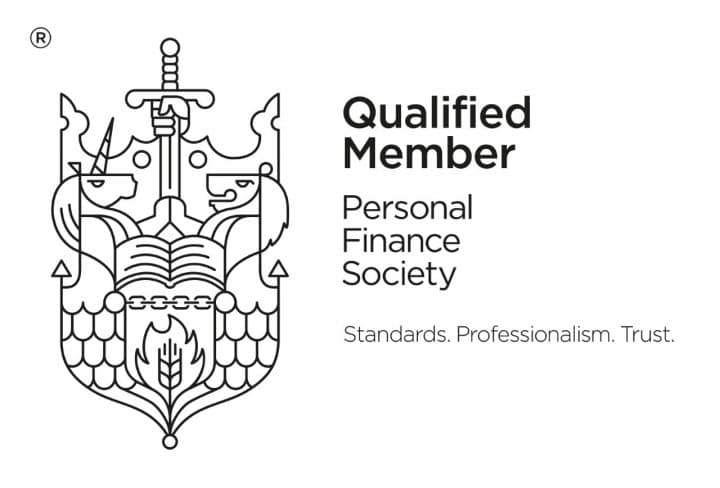1. Know what you spend.
Completing a detailed budget planner that shows all of your spendings will make the biggest difference:
- It shows you the ‘missing money’. You log your income, essential spending, and leisure spending which normally will reveal a disposable income that doesn’t quite reflect reality. Find this money, save this money.
- Going through your bank statements can reveal duplicate subscriptions or unexpected payments that you can cancel or challenge.
- It helps you recognise where you need to scale back spending by quantifying all the small costs that add up to a big spend. I love my coffee – so when I performed this exercise for myself and saw my monthly latte spend, difficult decisions were made.
2. Shopping around
Shopping around has become very challenging. It’s pointless for energy at the moment, as all the providers are hitting the price cap, but there are still things you can do:
- Many providers particularly in technology and insurance slowly increase prices over time, which I call ‘price stair casing, which exploits clients who refuse to move. Call them to express dissatisfaction, or threaten to cancel, and 9/10 times, they will offer a discount to retain your business. Tread with caution, this doesn’t always work, and be prepared to actually cancel if they won’t budge.
- Use comparison websites. Looking for cheaper prices for comparable service can make a big difference. Make sure you use 2 comparison websites because they may yield different results. Also ensure they display all prices – some will have an option that hides all deals that they cannot facilitate a switch for.
3. Savings – Go digital, Go big
Savings get eroded in a high-inflation market – the psychological barrier is the figures stay the same so you don’t see the loss. Think about the following:
- Make sure you get the best return on your savings. Comparison websites don’t always show you the best rate, but they still, give a guide to some of the best deals.
- Investing spare money long-term in assets like stocks and funds will give you the opportunity for growth that meets or exceeds inflation. Make sure you have a cash emergency fund, and you can invest for the long term. Investments can rise as well as fall and you may get back less than you put in, so it’s important to take advice from a professional before investing to have the best chances of success.
4. Improve the energy efficiency of your home
Invest in your home, you can make small changes that require very little money. Here are a few of the options for those with cash to splash and those on tight budgets:
- Most windows have a rubber lining in the frame that wears over time. If you hold your hand to window and you feel cold air breezing through, this can easily be solved using some rubber strips. Find a handyman or do some research. Don’t live with it!
- Make sure your attic is insulated. Insulation is relatively cheap and you can make a very quick return on your investment doing this since heat rises and gets lost through the roof. Many attics have gaps where there is no insulation or older homes may have a thin layer that needs to be replaced or added to. Ensure you speak with a professional regarding the type of insulation you may require as there have been reports of spray foam insulation causing condensation and stopping moisture from escaping.
- Cavity wall insulation – This can make a big difference in losing heat through the walls, but demand is high so it will cost you. Ensure that you don’t use any insulation that ‘stops the wall breathing’ as this can give rise to damp issues. Make sure you do your research and take advice from an expert.
- LED bulbs – They are just as good as traditional but work on a much lower wattage. This doesn’t mean all lights should remain on all the time, since forgetting to do so will speed up the need to buy a new bulb.
- Smart Heating – Digitising your home heating and water can be relatively cheap to do but give you much more control over your use. As an example, if you go out for the day you could use your mobile to turn your heating off and then turn it on whilst traveling home.
5. Food waste
9.5 million tonnes of food finds its way to the bin each year in the UK alone. Considering how high food inflation is, you should tackle this:
- Make sure you plan your meals to utilise food that will be expiring soon, and check what is in the fridge before doing a food shop.
- Many foods have best-before dates, but this doesn’t mean it’s off. Do your research to get an understanding of what is safe to keep. Many foods that pass the smell and appearance test can be kept.
- Look at switching to different brands or even change supermarkets. Often the quality and taste can be identical for certain products. You simply pay more because you buy into a brand, so experiment and try a variety to see if you can spot the difference.
6. Bulk buy & Pay for costs yearly
- When you see a discount on a product you often use that has a long life e.g. canned goods, buy them in bulk. Inflation on food is very high, so in theory – stocking up now will earn ‘interest’ at its inflationary rate by avoiding having to buy it at more costly prices in the future, although prices of course could go down.
- Many costs such as car insurance attract eye-watering interest that is baked into the price when you pay monthly. Clearing the balance and paying for such costs yearly mean you save a substantial amount on the cost.
7. Capitalise on Cashback
- There are many cashback websites that will reward you for buying via their links or platforms with generous cashback.*
- *Don’t be tempted into purchasing things just for the cashback. Check to see if items or services you were already planning on buying offer cashback via these sites. There are credit cards that offer cashback, however due to the nefarious nature of most credit suppliers, I typically don’t recommend taking up these options even when free. Most credit card companies will be quietly hoping you will fall into debt and they leverage a range of techniques to make this come to fruition.
8. Bin your bank – Change your current account
- Many bank accounts offer little in the way of real benefits, but there are those that offer cashback on things like your food shop, energy bills and council tax. Shop around to ensure your current account gives you these rewards, which at the moment could be worth £100’s a year. As covered in point 7, if the cashback is in the form of a credit card, tread caustiously.
- There are some current accounts that will offer you a welcome bonus for switching your bank account, we’ve seen offers as high as £200 in the previous year. Be aware that you need to meet their criteria, but this could give a welcome boost during difficult times.
9. Deal with your debt
- For credit card debt, look to transfer the balance to a new provider which offers an interest free period. This can help you pay down the debt quickly, just be mindful interest rates can often be very high on new spending.
- Don’t suffer in silence. If you have a large amount of debt and are struggling to cope, speak to the providers and let them know you are having financial difficulties. Be honest and they are obligated to help you avoid situations such as ‘debt spirals’ and get back on track. They may offer to waive fees, provide you with an interest free period or some other arrangement.
- Not all banks or providers live up to their responsibilities, so be prepared for them to say ‘tough’. When this happens, this is not the end of the journey. You should check out this website to read and understand the Standards for lending to know what you should expect and what they should be doing:
https://www.lendingstandardsboard.org.uk/personal-customers/
Note that the above should not be treated as debt advice and is guidance only, you should seek professional advice but be cautious as there are many free sources of help in the market, but also many companies that charge you for debt consolidation and advice (which should be avoided). The Citizens Advice free debt line should be your first port of call and the UK Money Helper Website.
10. Ask for a pay rise
The CPI inflation rate hit 10.1% in September 2022, whilst wages increased year to date for the same period by a mere 5.7%. As a result, this means you’re getting effectively a pay cut of 4.4%. You should speak to your employer and ask for an inflationary pay rise.
We understand there is no silver bullet to the continued struggle against high inflation, but we hope that some of these tips can help out during this tough time.
If you feel you need help and want to speak to a qualified money expert or financial adviser, book a consultation with us today or call 0207 082 5500.
Sources:
https://www.businesswaste.co.uk/
ONS
Experian






